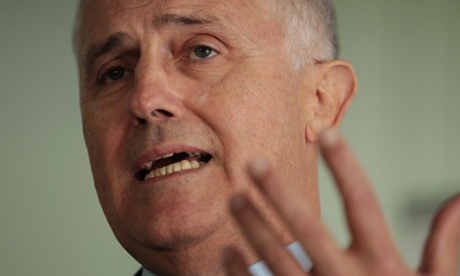
A government minister, believed to be the communications minister, Malcolm Turnbull, had to give a demonstration to explain what a virtual private network (VPN) is to those who have been seeking mandatory data retention powers, Liberal Democrat senator David Leyonhjelm has told a US magazine.
Leyonhjelm told Reason magazine that he had spoken to an unnamed minister who knows what metadata is and “knows quite a lot about the internet and how it works”, and who told him that the people who are asking for this power don’t understand it, Gizmodo reported.
“He gave them a demonstration on a VPN [virtual private network] and said, ‘By my IP address, tell me what you can find out about me now.’ And they had no idea there was such a thing as a VPN,” Leyonhjelm said.
“It indicates to me that these people are not well-informed enough to make these kinds of decisions.”
Leyonhjelm told Reason the unnamed minister “knows what he’s talking about”.
“But he’s surrounded by people who don’t know what they’re talking about, who think that they need something more. We don’t know yet where this will end up. It does have the potential to be very dangerous.”
The government is facing strong opposition to its plans to bring forward discussions on mandatory data retention laws amid its proposed suite of counter-terrorism measures.
Intelligence agencies have been able to access metadata for some time, but the new laws would require telecommunications companies and internet service providers (ISPs) to store customers’ metadata for two years.
The head of Asio, David Irvine, said if a warrant was required for every request for metadata “the whole system would grind to a halt”.
The plan has been criticised by privacy and technology advocates and the Greens.
The prime minister, Tony Abbott, and attorney general, George Brandis, announced the plans earlier this month without the communications minister present, but did not provide detail on exactly what the data retention scheme would involve.
Confusion increased during the day as Abbott and Brandis gave conflicting answers on what constituted metadata, and what could be accessed by intelligence services without a warrant. Brandis also struggled to define metadata in a widely watched interview with Sky News.
The data retention proposal was leaked to the media before it was presented to cabinet, prompting angry scenes between ministers as Turnbull became frustrated at the lack of detail and knowledge of how the scheme would work.
He also said there were “formidable” technical problems with the concept.
“There’s a lot more data out there but there is less and less of it actually in the hands of the telcos – this is an important point to bear in mind – so it’s a very complex issue,” he said.
“There are technical questions, there are issues of privacy and security. No one said government was easy and this is just another one of those difficult exercises that we’ve got to deal with.”
Leyonhjelm declined to confirm who the minister he referred to in the interview was.
“The events described in the Reason interview were simplified for an American audience and concern a number of briefings with different people. These briefings were private and I would not like to go into any further detail,” he told Guardian Australia.
Turnbull’s office did not respond to requests for comment.

